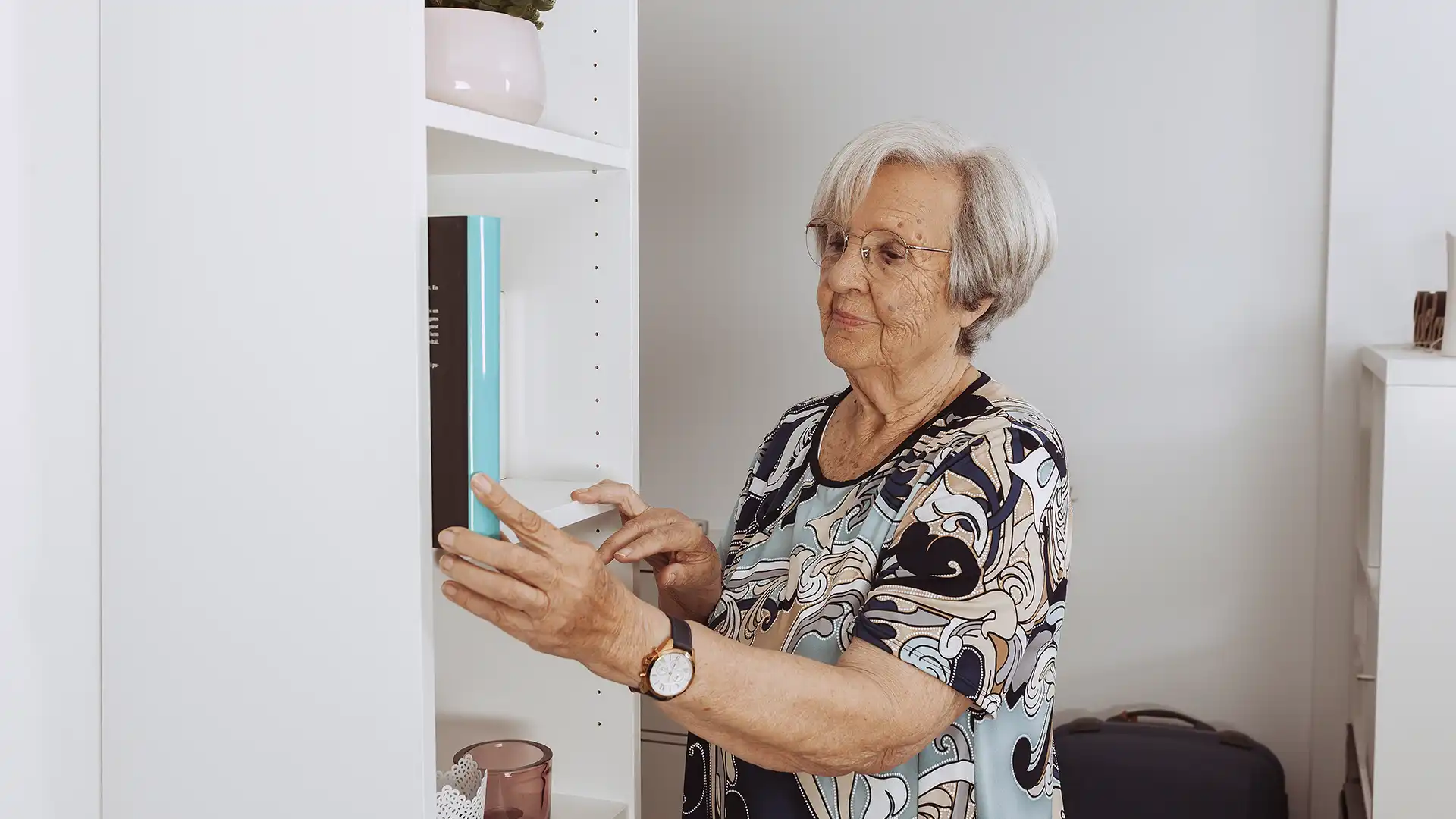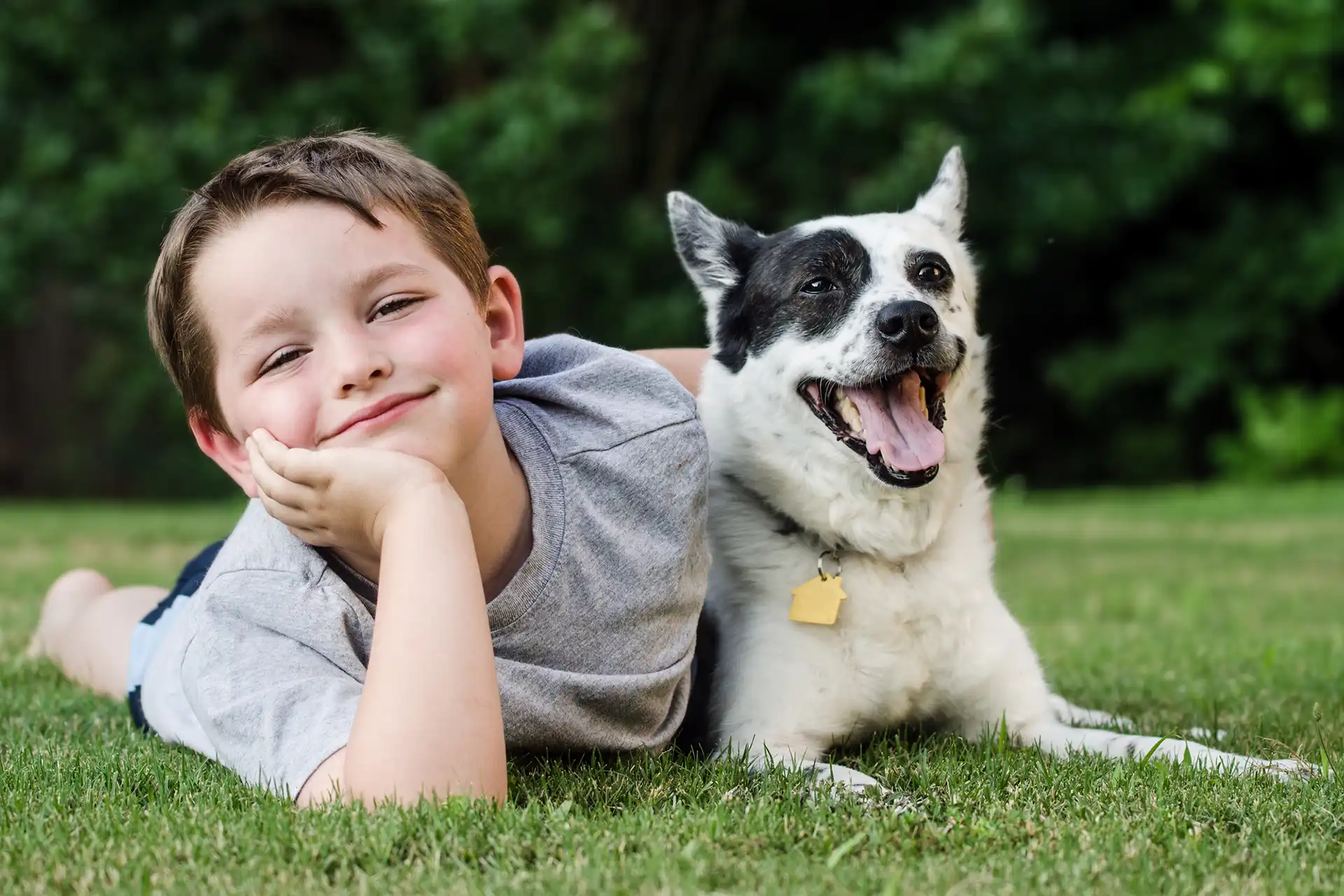Hypnosis for children is an intervention that has gained attention due to its potential benefits in addressing various challenges faced in our society. This article provides an overview of hypnosis and its application specifically for children. You will better understand how hypnosis can support children’s well-being by exploring the misconceptions surrounding the practice and the process.
Key Takeaways
- Hypnosis for children is a therapeutic intervention that utilises the power of suggestion to address psychological and physical issues in young children.
- Hypnosis can help children confront their fears, develop coping mechanisms, and build self-confidence.
- Hypnosis needs to be conducted by qualified, experienced and industry-accredited professionals who specialise in working with children.
- Hypnotherapy uses age-appropriate language and techniques to ensure the child feels comfortable.
Hypnotherapy for children
Hypnotherapy for children, the therapy using hypnosis, has been explored as a successful therapeutic intervention for children. Pediatric hypnosis, also known as hypnotherapy for children, is an alternative approach that focuses on utilising the power of suggestion to help alleviate various psychological and physical issues in young children.
A child-centred approach aims to address anxiety and phobias by guiding children into a relaxed state of mind where they become more receptive to positive suggestions. By engaging their imagination and creating a safe space, hypnosis can empower children to confront their fears, build coping mechanisms, and develop self-confidence.
Introduction
The use of therapeutic techniques aimed at inducing a relaxed state in young individuals has been an area of interest within psychology. One such technique is hypnosis, which has gained recognition as a potential tool for helping children cope with various challenges and improve their well-being. Hypnotherapy for kids involves using hypnosis in a child-centred and empathetic manner to address issues such as anxiety, phobias, bedwetting, and behavioural problems.
Clinical hypnotherapists can help children safely explore their thoughts, feelings, and behaviours by guiding them into focused attention and heightened suggestibility. This can lead to increased self-awareness and development of coping strategies that empower children to overcome difficulties. The table below overviews common concerns addressed through children’s hypnotherapy.
Concern Description Benefits Anxiety Excessive worry or fearfulness Reduction in anxiety symptoms Phobias Intense and irrational fears Desensitization and improved confidence Bedwetting Involuntary nighttime urination Improved bladder control Behavioural problems Disruptive or challenging behaviours Enhanced self-control skills
“Using hypnosis as a therapeutic approach for children can effectively promote emotional well-being, build resilience, and foster positive change.” Paul Smith, Clinical Hypnotherapist
Explanation of hypnosis and its benefits
One approach that has gained recognition for its potential benefits in promoting emotional well-being and fostering positive change involves inducing a relaxed state in young children. This approach, known as hypnosis for children or hypnotherapy for children, aims to help children access their subconscious mind and tap into their inner resources.
Hypnosis is a state of focused attention and heightened suggestibility, where the individual becomes deeply relaxed and open to positive suggestions.
Benefits of hypnotherapy for children include:
- Reduced anxiety: Hypnosis helps children learn relaxation techniques to alleviate stress and anxiety.
- Improved self-esteem: Children can develop a more positive self-image and belief in their abilities by accessing their subconscious mind.
- Behaviour modification: Hypnotherapy can be effective in addressing issues such as bedwetting, nail biting, or phobias.
Hypnosis helps children by empowering them to make positive changes within themselves, leading to improved emotional well-being and overall happiness.
Overview of the use of hypnotherapy for children
Hypnotherapy for young individuals aims to facilitate emotional well-being and positive change by inducing a relaxed state and tapping into the subconscious mind. Hypnosis can be an effective tool in helping children cope with stress and anxiety. Research suggests that children respond well to hypnotherapy because they can imagine and engage in imaginative play.
In a child-centred approach, the therapist uses age-appropriate language and techniques to guide the child into a hypnotic state. During the session, the child is encouraged to explore their feelings, thoughts, and emotions in a safe environment. Through suggestion and visualisation, hypnotherapy can help your child develop coping strategies, build self-esteem, and manage fears or phobias.
Common misconceptions surrounding hypnosis for children
Common misconceptions surrounding the use of hypnotherapy for young children include concerns about loss of control, manipulation, and potential adverse side effects. However, it is important to dispel these misconceptions and understand the potential benefits of hypnosis for children and adolescents.
Misconception 1: Loss of Control
- Hypnotherapy for children does not involve complete loss of control. Children remain aware and in control throughout the session.
Misconception 2: Manipulation
- Clinical hypnotherapists prioritise the well-being and consent of children. They work collaboratively with them to address specific issues or concerns.
Misconception 3: Potential Negative Side Effects
- When conducted by a qualified professional, hypnotherapy for children is safe for children and adolescents and is a highly effective treatment for children. Any potential side effects are minimal and temporary.
Understanding these common misconceptions allows us to approach hypnosis for children with informed perspectives, recognising its potential as a valuable therapeutic tool in promoting a child’s well-being.
Importance of addressing children’s mental health early on
Understanding children’s susceptibility to hypnosis is crucial to utilise this therapeutic technique for their benefit effectively.
Children possess a highly imaginative and suggestible nature, which makes them particularly receptive to the power of suggestion during hypnosis.
Factors such as age, developmental stage, and individual differences also play a role in determining a child’s responsiveness to hypnosis, highlighting the importance of tailoring hypnotic interventions to meet each child’s unique needs.
Understanding children’s susceptibility to hypnosis
Research has shown that children generally exhibit higher suggestibility and responsiveness to hypnosis levels than adults. Understanding children’s susceptibility to hypnosis is crucial in harnessing its potential for therapeutic purposes.
Here are some key points to consider:
- Children’s vivid imagination: Their ability to immerse themselves in imaginative play allows them to engage more deeply with hypnotic suggestions.
- Natural openness: Children often have fewer preconceived notions about what is possible, making them more receptive to the power of suggestion.
- Trust in authority figures: Children tend to trust and follow instructions from adults, including therapists, which can enhance the effectiveness of hypnotic techniques.
Hypnotherapy can help your child by utilising these inherent characteristics. By tailoring hypnotic interventions specifically for children, therapists can address a wide range of issues, such as anxiety, phobias, focus and behavioural problems.
Understanding and respecting children’s unique experiences and perspectives is crucial in providing effective support through hypnosis.
Explanation of children’s highly imaginative and suggestible nature
Children’s highly imaginative and suggestible nature can be attributed to their cognitive development and the way they process information. Their vivid imagination allows them to create rich, immersive inner worlds where anything is possible. This imaginative capacity makes children more open to suggestions and influences from their environment. Additionally, their cognitive abilities are still developing, making them more susceptible to external influences.
To further understand the impact of children’s highly imaginative and suggestible nature in the context of hypnosis, consider the following.
Aspect Explanation Implications Vivid imagination Children have a rich inner world that enhances visualisation Hypnotic suggestions can be more impactful as children can easily imagine them Openness to suggestion Children tend to trust adults and authority figures They may accept hypnotic suggestions more readily Cognitive development Children’s brains are still developing Techniques used in hypnosis should be age-appropriate and empowering
Various factors can influence children’s responsiveness to hypnosis. Understanding these factors is crucial for parents seeking hypnotherapy for their children or professionals working with children’s issues. Here are some key considerations:
- Age: Younger children generally have a more vivid imagination and are more suggestible, making them more receptive to child hypnosis.
- Developmental stage: Children at different stages of development may have varying levels of cognitive abilities and understanding, which can affect their ability to engage in hypnotherapy.
- Personality traits: Some children may naturally be more open and willing to try new experiences, while others may be more resistant or cautious.
Considering these factors, a clinical hypnotherapist will tailor their approach to help a child feel comfortable and engaged during hypnosis sessions.
Creating a safe and supportive environment is essential for effective work with children, ensuring they receive the necessary support for their unique needs.
Age
The age of the child can influence their responsiveness to hypnosis. Pediatric hypnotherapy sessions consider children’s developmental stage and cognitive abilities. Different ages may require different approaches and techniques to effectively engage and communicate with young clients.
Below is a table outlining how children of different ages may respond to hypnosis:
Age Group Hypnosis Responsiveness Infants Limited or no response Toddlers Some level of response but limited attention span School-aged children Increasingly responsive, better ability to follow instructions
Pediatric hypnotherapists need to adapt their techniques accordingly. For infants, gentle, soothing techniques may be employed, while toddlers may benefit from shorter, more interactive sessions. School-aged children can usually participate in more structured hypnotherapy sessions that involve guided imagery or storytelling.
Understanding the influence of age on a child’s responsiveness allows practitioners to tailor their approach, ensuring a positive and effective experience for young clients during hypnosis sessions.
Personality traits
Personality traits can play a role in how individuals respond to therapeutic interventions. Understanding children’s unique personality traits becomes crucial in tailoring the treatment approach to hypnotherapy.
Here are three ways in which personality traits can influence the effectiveness of hypnotherapy for children:
- Fears and Phobias: Children with high levels of anxiety or fear may require additional reassurance and support during hypnosis sessions to address their concerns or phobias effectively.
- Sleep Issues: Children with difficulty sleeping may benefit from hypnotherapy techniques that promote relaxation and help them develop healthier sleep patterns.
- Behaviour: Personality traits related to temperament, such as impulsivity or stubbornness, may require specific strategies within the hypnotherapy process to engage the child effectively.
Previous experiences with hypnosis
The benefits of hypnosis for children are numerous and can positively impact their well-being.
Firstly, hypnosis can help children manage and reduce anxiety by teaching them relaxation techniques and coping strategies.
Secondly, it can improve focus and concentration, benefiting academic performance.
Lastly, hypnosis can also aid in improving self-esteem and self-confidence in children by helping them overcome challenges or negative beliefs about themselves.
Incorporating hypnosis into a child’s therapeutic journey can offer valuable emotional growth and development tools.
Benefits of hypnosis for children
One potential benefit of hypnosis for children is its ability to alleviate symptoms of anxiety and improve overall well-being.
- Reducing Anxiety: Hypnosis can help children manage their anxiety by teaching them relaxation techniques and providing a sense of control over their emotions.
- Addressing Nail Biting: Hypnosis has effectively addressed nail-biting habits in children, helping them break the cycle and develop healthier coping mechanisms.
- Treating Bed Wetting: Hypnotherapy can assist children who struggle with bedwetting by targeting the underlying emotional factors contributing to this issue and promoting better bladder control during sleep.
- Overcoming Thumb Sucking: Through hypnosis, children can learn alternative ways of self-soothing, reducing their reliance on Thumb sucking as a coping mechanism.
Pediatric hypnosis
Pediatric hypnosis is a natural and effective technique that utilises the power of suggestion to induce a trance-like state in children for therapeutic purposes. This technique has recently gained popularity as a non-invasive and drug-free option for treating various pediatric conditions, such as anxiety, chronic pain, bedwetting, and even behavioural problems. Hypnosis is a natural state of consciousness that we all experience daily, like when we get absorbed in a book or daydream.
Through hypnotherapy, experienced professionals at Norwest Wellbeing can guide children into this relaxed state, where they become more open to positive suggestions and can tap into their subconscious mind. During the process, the child’s mind becomes highly focused and receptive to therapeutic suggestions, allowing positive changes. The effectiveness of pediatric hypnosis in improving various health conditions has been well-documented, making it a viable option for parents seeking alternative treatments for their children.
Addressing common childhood challenges

Common childhood challenges include:
- Bedwetting
- Anxiety and phobias
- Sleep disorders
- Behavioural issues
- Academic performance
- Attention-deficit/hyperactivity disorder (ADHD)
- Attention deficit disorder (ADD)
- Autism spectrum disorder (ASD)
These challenges can significantly impact a child’s well-being and development. By understanding the factors contributing to these difficulties and exploring effective strategies for intervention and support, we can create a nurturing environment that promotes positive outcomes for children facing these challenges.
These challenges can significantly impact a child’s well-being and development. By understanding the factors contributing to these difficulties and exploring effective strategies for intervention and support, we can create a nurturing environment that promotes positive outcomes for children facing these challenges.
Bedwetting
Bedwetting is a common issue among children, and there has been interest in utilising hypnosis as a potential intervention. Hypnotherapy today offers an alternative approach to help children overcome this challenge. Here are three key points to consider:
- Empowering the child: Hypnotherapy focuses on empowering the child by helping them understand their body’s signals and develop control over their bladder. The child can learn to calm their mind and body by teaching relaxation techniques and visualisation exercises.
- Enhancing focus: Hypnosis allows children to enter a relaxed state where they can focus on positive suggestions for staying dry at night. This helps create new neural pathways in the brain, reinforcing desired behaviours.
- Addressing underlying issues: Hypnotherapy explores any emotional or psychological factors that may contribute to bedwetting. By addressing these underlying issues, such as anxiety or stress, the therapy aims to alleviate symptoms and promote continence.
Anxiety and phobias
Anxiety and phobias are psychological conditions that can significantly impact an individual’s daily functioning and quality of life. For children experiencing anxiety or phobias, hypnotherapy at the Norwest clinic in Sydney may offer a potential solution.
Enhances focus and concentration: Hypnotherapy offers tools for improving attention span and optimising cognitive abilities. It is important to note that hypnotherapy should always be conducted by qualified professionals who specialise in working with children.
This approach can empower children and improve their overall well-being with proper guidance.
Sleep disorders
Sleep disorders can significantly impact a child’s well-being and daily functioning. When conducted by a qualified hypnotherapist, hypnosis can be an effective intervention for children struggling with sleep issues. In a hypnosis session, the hypnotherapist uses relaxation techniques to help calm the child’s mind and induce deep relaxation. This enables the child to enter a suggestible state where positive suggestions for falling asleep are given.
Benefits of hypnosis for sleep disorders in children include:
- Reduced anxiety: Hypnosis helps kids relax and alleviate any anxiety or stress that may be contributing to their sleep difficulties.
- Improved sleep quality: Children experience better sleep patterns and restful nights by addressing underlying concerns through hypnotic suggestions.
- Enhanced bedtime routine: Hypnosis sessions allow parents and children to establish healthy routines that promote relaxation and ease into falling asleep.
Overall, hypnosis offers a gentle and non-invasive approach to help children overcome sleep disorders and enjoy peaceful nights of rest.
Behavioural issues
Behavioural issues in childhood can significantly impact a child’s overall development and well-being. Children experiencing behavioural issues and focus related to ADD or ADHD may struggle with managing emotions, social interactions, or impulse control. These challenges can affect their academic performance, relationships with peers and family, and overall happiness.
Hypnosis for children has been recognised as an effective intervention for addressing behavioural issues. Hypnotherapy helps children with these issues by tapping into their subconscious mind to promote positive behaviour and thought pattern changes. By accessing the child’s subconscious mind, hypnosis can help identify the underlying causes of behavioural problems and provide strategies for coping and self-regulation.
The table below outlines some common behavioural issues seen in children and how they may benefit from hypnotherapy:
Behavioural Issue Potential Benefits of Hypnotherapy Anxiety Reducing stress levels and promoting relaxation Attention Deficit Disorder Enhancing focus and attention span Oppositional Promoting cooperation and conflict resolution Defiant Building self-esteem and reducing defiance tendencies
Academic performance
Academic performance is a multifaceted measure of a student’s abilities and achievements in the educational setting. It encompasses various aspects such as grades, test scores, class participation, and overall comprehension of the subjects taught.
For children, achieving academic success is crucial for their personal growth and future opportunities. Hypnosis for children can be an effective tool to enhance their academic performance. By tapping into the child’s mind, hypnosis can help create a positive mindset that promotes learning and encourages focus.
Through hypnosis sessions tailored specifically for children, it becomes possible to address any underlying issues that may hinder their academic progress. This approach aims to empower children to be happy learners while developing strategies that improve their ability to concentrate in the classroom environment.
Hypnosis helps unlock potential: By accessing the child’s subconscious mind, hypnosis can help uncover hidden talents and strengths.
Promotes emotional well-being: Hypnosis techniques can assist in reducing stress and anxiety related to academics.
Enhances focus and concentration: Hypnotherapy offers tools for improving attention span and optimising cognitive abilities.
Improvement in overall well-being and self-esteem
Enhancing overall well-being and fostering positive self-esteem are potential benefits reported in the literature regarding the application of hypnosis for children.
Hypnotherapy has been found to facilitate positive change by targeting specific areas of concern, such as anxiety, phobias, and behavioural issues.
By engaging with a trained hypnotherapist in a safe and supportive environment, children can be guided towards developing coping strategies, enhancing their emotional regulation skills, and building resilience.
Through hypnosis, children may experience improved general well-being, including reduced stress levels and increased self-confidence.
The hypnotic state allows for accessing the subconscious mind where beliefs and attitudes are formed, enabling children to reframe negative thoughts and establish more positive self-perceptions.
This process can enhance self-esteem and empower children to navigate life’s challenges more easily.
The process of hypnosis for children
When considering hypnosis for children, finding a qualified and experienced hypnotherapist who understands children’s unique needs and sensitivities is crucial.
The initial consultation with the child is an important step in building rapport and trust, allowing the child to feel comfortable and at ease during the sessions.
Engaging the child in relaxation and visualisation techniques helps them enter a state of focused attention, enabling them to respond positively to suggestions that promote desired behaviours.
Importance of finding a qualified and experienced hypnotherapist
It is crucial to ensure the selection of a qualified and experienced hypnotherapist when considering hypnosis as a therapeutic approach for children. The importance of finding such a professional cannot be overstated, as it directly impacts the effectiveness and safety of the treatment.
When seeking a hypnotherapist for children, consider the following:
- Qualifications: Look for practitioners with training and experience in working with children who are members of the major hypnotherapy associations in Australia. The (AHA) Australian Hypnotherapy Association and the (HCA) Hypnotherapy Council of Australia are two main hypnotherapy associations in Australia. The peak body for hypnotherapists in Australia.
- Experience: Seek out professionals with extensive experience using hypnosis with children, as they will possess the necessary skills to tailor the treatment to meet their unique needs.
- Child-friendly approach: Choose a hypnotherapist who adopts child-centred techniques and creates a supportive and nurturing environment that allows children to feel comfortable and safe during sessions.
Initial consultation and rapport-building with the child
The initial assessment and rapport-building with the child are crucial steps in utilising hypnosis effectively. During the initial consultation, a qualified hypnotherapist will gather information about the child’s medical history, emotional well-being, and any specific concerns or issues they may have. This helps to establish trust and understanding between the child and the therapist.
Various techniques can be employed to create a comfortable environment for the child. These techniques are calming and aim to put the child at ease. Visual aids such as pictures or objects related to their interests can engage their imagination. Additionally, age-appropriate language is utilised to ensure clear communication.
Below is an example of how different techniques can be used based on the age of the child:
Age Group Techniques 3-6 years Storytelling, Metaphors and conversational hypnosis 7-11 years Guided visualisation exercises, stratigic questioning 12+ years Dialogue-based sessions with open-ended questions
This variety of techniques allows for personalised approaches catering to each child’s needs, ensuring a positive experience during hypnosis therapy sessions.
Engaging the child in relaxation and visualisation techniques
Engaging the child in relaxation and visualisation techniques involves utilising various methods tailored to their age group. Storytelling can be a practical approach for children aged 3-6 years. This allows the child to immerse themselves in a narrative while promoting relaxation and visualisation. Guided visualisation exercises are more suitable for children aged 7-11 years.
These exercises involve guiding the child through a calming scenario using descriptive language and prompts. Dialogue-based sessions with open-ended questions are beneficial for individuals aged 12 and above as they encourage reflection and introspection.
- Engage young children through storytelling with metaphors.
- Use colourful visuals to capture their attention.
- Encourage imaginative thinking by asking questions about the story.
- Create a safe and comforting environment for relaxation.
- Guide older children through visualisation exercises.
- Provide clear instructions for visualising calming scenarios.
- Incorporate sensory details to enhance their experience.
- Allow time for them to share their visualisations and feelings afterwards.
- Foster dialogue-based sessions with open-ended questions for adolescents.
- Encourage self-reflection by asking probing questions.
- Active listening validates their thoughts and emotions.
- Respect privacy when discussing sensitive topics.
Introducing positive suggestions and reinforcing desired behaviours
In the context of hypnosis for children, introducing positive suggestions and reinforcing desired behaviours is crucial. By doing so, we can help the child develop new patterns of thinking and behaving that align with their goals and aspirations.
During a hypnosis session, the hypnotist guides the child’s mind towards positivity and encourages them to imagine engaging in desired behaviours. The hypnotist plants seeds of change within the child’s mind through carefully chosen words and imagery. These suggestions promote positive habits, such as improved concentration, self-confidence, or overcoming fears.
The child’s mind is full of potential, and by harnessing its power through hypnosis, we can facilitate the desired changes more effectively. Repetition plays a significant role in reinforcing these suggestions over time. By consistently incorporating positive affirmations into daily routines or using audio recordings specifically designed for children undergoing hypnosis sessions, we can further enhance the effectiveness of this technique.
It is important to note that while introducing positive suggestions during hypnosis can be powerful, it should always be done with sensitivity and respect for each child’s unique needs and experiences.
Gradual sessions to achieve long-term results
Gradual sessions that are conducted over a period of time can be effective in achieving long-term results when using hypnosis for children. This approach recognises that a child’s mind is full of various thoughts, emotions, and experiences that may require time to address and resolve. By breaking down the therapeutic process into smaller, manageable steps, gradual sessions allow children to gradually explore and understand their underlying causes of distress or unwanted behaviours.
To help children enjoy these sessions, the following strategies can be implemented:
- Incorporating age-appropriate activities and language during the hypnosis sessions.
- We are encouraging active participation through strategic discussions.
- Providing opportunities for feedback and reflection after each session.
Safety considerations for hypnosis with children
Safety considerations must be carefully addressed when utilising hypnosis techniques with pediatric populations to ensure the well-being and protection of the individuals involved. When working with children, it is crucial to prioritise their safety by creating a supportive and comfortable environment.
Hypnosis sessions should be conducted by qualified professionals who understand child development and have expertise in working with young clients. It is important to assess the child’s readiness for hypnosis and obtain informed consent from both the child and their parents or guardians.
During the session, practitioners should use age-appropriate language and explanations, ensuring that children feel understood and respected. Additionally, practitioners must closely monitor the child’s behaviour during trance states to provide comfort and prevent distressing experiences.
Ethical guidelines for hypnotherapists working with children
When it comes to hypnosis for children, ethical guidelines are crucial for the hypnotherapists working with them. These guidelines ensure the child’s well-being and safety are prioritised. Here are some key ethical considerations for hypnotherapists working with children:
- Informed Consent:
- Hypnotherapists should obtain consent from both the child and their parent or legal guardian.
- They must provide clear explanations of the process and answer any questions.
- Confidentiality:
- The child’s confidentiality should be respected unless there is a risk of harm to themselves or others.
- Age-appropriate Techniques:
- Hypnotherapists need to use age-appropriate language, imagery, and techniques when working with children.
- They should tailor their approach to match the child’s developmental stage and understanding.
Ensuring parental consent and involvement
Parental consent and involvement are essential to consider when working with young clients in hypnotherapy. To ensure the safety and well-being of children undergoing hypnosis, therapists must obtain explicit consent from parents or legal guardians. This establishes a foundation of trust and ensures that the child’s best interests are prioritised throughout the therapeutic process.
Parental involvement is equally important as it enables parents to participate actively in their child’s treatment, providing necessary support and understanding. Involving parents allows therapists to gather valuable information about the child’s background, preferences, and specific needs, which can help tailor hypnotherapy sessions to be contextually relevant and effective.
Monitoring the child’s emotional state throughout the process
Throughout the therapeutic process, monitoring the emotional state of young clients is crucial to ensure their well-being and facilitate effective treatment outcomes. This is especially important when working with children who may have specific needs or conditions such as obsessive-compulsive disorder (OCD). When using hypnotherapy as a treatment modality for children with OCD, it becomes imperative to closely monitor their emotional state to create a safe and supportive environment.
- Creating a Safe Space: Ensuring the child feels safe and comfortable throughout the session is vital to establishing trust and rapport.
- Identifying Emotional Triggers: By monitoring the child’s emotions, therapists can identify specific triggers that may exacerbate or alleviate their OCD symptoms.
- Adapting Treatment Strategies: Regular monitoring allows therapists to adapt treatment strategies based on the child’s emotional responses, tailoring interventions to their unique needs.
Addressing any potential risks or side effects
Addressing any potential risks or side effects is essential in ensuring the safety and well-being of young clients undergoing hypnotherapy for OCD.
While hypnosis can be an effective treatment option for children with obsessive-compulsive disorder (OCD), it is important to consider the possible risks and side effects that may arise.
Potential risks may include a temporary increase in anxiety or distress during the hypnotic session and the possibility of false memories or suggestibility.
Side effects of hypnosis are uncommon but may exist. Speak with the hypnotherapist before the session.
To minimise these risks, it is crucial for therapists to have adequate training in working with children and to create a safe and supportive environment throughout the hypnotherapy process.
Regularly monitoring the child’s emotional state before, during, and after each session can help identify adverse reactions and ensure appropriate intervention.
Success stories and testimonials from parents and children
Let’s explore real-life experiences that highlight the effectiveness of hypnosis for children.
Through these experiences, we will gain insight into how this therapeutic approach can positively impact the lives of children.
Testimonials from parents expressing their satisfaction and gratitude will provide further evidence of the benefits of hypnosis in helping children overcome various challenges and improve their overall well-being.
Real-life experiences showcasing the effectiveness of hypnosis for children
Several case studies have documented real-life experiences that provide evidence of the effectiveness of hypnosis for children. Hypnosis is an effective way to address various issues and improve the well-being of children.
- Reducing anxiety and stress: Real-life experiences show how hypnosis can help children effectively manage their anxiety and stress levels. By teaching relaxation techniques and empowering children with coping strategies, hypnosis can give them a sense of control over their emotions.
- Promoting positive behaviours: Hypnosis has been successful in helping children overcome habits such as nail-biting or bedwetting by reinforcing positive behaviours through suggestions during trance-like states.
- Enhancing learning and concentration: Through guided imagery and focused attention, hypnosis can enhance a child’s ability to concentrate, retain information, and improve academic performance.
These real-life experiences highlight the potential benefits of incorporating hypnosis into therapeutic interventions for children, providing them with a holistic approach to addressing their emotional well-being.
Testimonials from parents expressing their satisfaction and gratitude
Testimonials from parents provide valuable insight into the level of satisfaction and gratitude experienced when incorporating hypnosis as a therapeutic intervention for children. These testimonials highlight the positive impact that hypnosis has had on their children’s well-being and development.
Parent Testimonial Hypnosis Benefits “Hypnosis has been a game-changer for my child with anxiety. They have learned coping mechanisms and gained confidence.” Reduced anxiety, improved coping skills, increased self-confidence “My son’s sleep issues were resolved through hypnosis. He now falls asleep faster and sleeps soundly throughout the night.” Better sleep quality, improved sleep patterns “Hypnosis helped my daughter overcome her fear of attending school. She now looks forward to attending without hesitation.” Increased self-assurance, improved public speaking skills “We are grateful for how hypnosis has helped our child manage their chronic pain. It has significantly reduced their discomfort and improved their daily functioning.” Pain management, enhanced daily functioning
These testimonials demonstrate the effectiveness of hypnosis as a therapeutic tool for children, providing them with valuable skills to navigate various challenges and improve their overall well-being. Parents express gratitude towards this intervention as it positively impacts their children’s lives.
Recap of the benefits and effectiveness of hypnosis for children
In the context of hypnosis for children, a review of the literature suggests that there is evidence supporting the benefits and effectiveness of this therapeutic approach. Hypnosis helps children in various ways, allowing them to better cope with challenges and improve their overall well-being.
Some key benefits include:
- Reduction of anxiety and stress: Using hypnotherapy techniques, children can learn relaxation skills that help calm their minds and bodies.
- Improve behavioural issues: Hypnosis teaches children self-control strategies, enabling them to manage impulsive behaviours more effectively.
- Enhanced focus and concentration: Through guided imagery and suggestion, hypnosis can assist children in developing better attention skills.
These benefits provide valuable tools for children to navigate life’s obstacles more easily. By utilising hypnotherapy explicitly tailored for children, therapists can empower young individuals to overcome difficulties while fostering a sense of empowerment and resilience.
Encouragement for parents to consider hypnosis as a potential solution for their children’s challenges
Encouraging parents to explore the potential benefits of utilising hypnotherapy as a therapeutic option for addressing their children’s challenges may provide them with alternative strategies to support their child’s well-being. Hypnosis for children has been shown to offer promising results in various areas, including managing anxiety, reducing pain, improving sleep, and enhancing concentration.
By considering hypnosis as a potential solution, parents can empower themselves with additional tools to help their children overcome difficulties they may be facing.
Parents play a crucial role in the well-being of their children. They need to understand that hypnosis is not a magical cure-all but rather an adjunctive therapy that works by harnessing the power of suggestion and imagination. The process involves inducing deep relaxation and guiding the child’s mind towards positive change through carefully crafted suggestions.
When considering hypnosis as an option, parents should ensure they seek out qualified professionals who specialise in working with children. These professionals will have the necessary skills and expertise to tailor interventions for young minds.
Children’s challenges
Children’s mental health issues can significantly impact their overall well-being and development. Early intervention plays a crucial role in addressing these challenges, and hypnosis has shown promise as an effective tool.
Children’s challenges
Children’s mental health issues can significantly impact their overall well being and development. Early intervention plays a crucial role in addressing these challenges, and hypnosis has shown promise as an effective tool in this regard.
Final thoughts on the importance of early intervention in addressing children’s mental health issues through hypnosis.
Conclusively highlighting early intervention’s significance in addressing children’s mental health issues, hypnosis emerges as a viable approach. Incorporating hypnosis into early intervention strategies can effectively address and improve children’s mental health. Hypnosis for children holds immense potential due to its ability to tap into the subconscious mind and facilitate positive behavioural changes.
Here are three reasons why hypnosis is an effective tool in addressing children’s mental health:
- Empowering self-awareness: Hypnosis helps children gain insight into their thoughts, emotions, and behaviours, fostering self-reflection and self-regulation skills.
- Enhancing coping mechanisms: Through hypnosis, children can develop healthy coping strategies to manage stress, anxiety, and other emotional challenges they may face.
- Boosting resilience: By reinforcing positive suggestions during hypnotic sessions, children can build resilience and develop a strong sense of self-esteem.
Frequently Asked Questions
What Is the Success Rate of Hypnosis for Children?
Research on the success rate of hypnosis for children is vast. Studies suggest that hypnosis can be effective in treating many childhood conditions. Results seen in clinical settings are fast and effective, and it is considered a safe form of treatment in children & adults.
Are There Any Potential Risks or Side Effects of Hypnosis for Children?
The potential risks or side effects of hypnosis for children remain low. Further research is needed to determine the extent and nature of any adverse effects, ensuring the safety and well-being of children who may undergo hypnotherapy.
How Long Does It Typically Take to See Results From Hypnosis for Children?
The time it takes to see results from hypnosis for children can vary depending on the individual and the specific issue being addressed. Factors such as the child’s age, readiness, and level of engagement in the process may influence the timeline.
Can Hypnosis Be Used as a Standalone Treatment, or Is It Typically Used in Combination With Other Therapies?
Hypnosis can be used as a standalone treatment or in combination with other therapies. Its effectiveness varies depending on the individual child and their specific needs. Further research is necessary to fully understand its potential benefits for children.
Are There Any Age Restrictions or Limitations for Children Undergoing Hypnosis?
Age restrictions or limitations for children undergoing hypnosis vary depending on the specific circumstances and the professional judgment of the practitioners involved. It is essential to carefully consider the child’s developmental stage, capacity for understanding, and ability to engage in the process effectively.
What is the youngest age Norwest Wellbeing works with?
Clinical hypnotherapist and psychotherapist Paul Smith works successfully with children as young as five and adults.
In conclusion, hypnosis for children can be valuable in addressing various challenges. It is an effective and safe therapeutic approach that can help children overcome fears, improve focus and concentration, manage stress and anxiety, and enhance their overall well-being.
By dispelling common misconceptions surrounding hypnosis and sharing success stories from parents and children, it becomes evident that hypnosis can provide positive outcomes for children.
With its child-centred approach, Norwest Wellbeing offers a unique way to empower children and support their emotional growth.




















